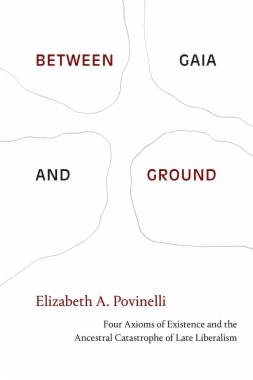In Between Gaia and Ground Elizabeth A. Povinelli theorizes the climatic, environmental, viral, and social catastrophe present as an ancestral catastrophe through which that Indigenous and colonized peoples have been suffering for centuries. In this way, the violence and philosophies the West relies on now threaten the West itself. Engaging with the work of Glissant, Deleuze and Guattari, Césaire, and Arendt, Povinelli highlights four axioms of existence—the entanglement of existence, the unequal distribution of power, the collapse of the event as essential to political thought, and the legacies of racial and colonial histories. She traces these axioms' inspiration in anticolonial struggles against the dispossession and extraction that have ruined the lived conditions for many on the planet. By examining the dynamic and unfolding forms of late liberal violence, Povinelli attends to a vital set of questions about changing environmental conditions, the legacies of violence, and the limits of inherited Western social theory. Between Gaia and Ground also includes a glossary of the keywords and concepts that Povinelli has developed throughout her work.
- Cover
- Contents
- Preface��������������
- Acknowledgments����������������������
- Introduction�������������������
- Section I
- 1. The Four Axioms of Existence
- 2. Toxic Late Liberalism
- Section II
- 3. Atomic Ends: The Whole Earth and the Conquered Earth
- 4. Toxic Ends: The Biosphere and the Colonial Sphere
- 5. Conceptual Ends: Solidarity and Stubbornness
- Postscript
- Glossary���������������
- Notes������������
- Bibliography�������������������
- Index������������
- A
- B
- C
- D
- E
- F
- G
- H
- I
- J
- K
- L
- M
- N
- O
- P
- Q
- R
- S
- T
- U
- V
- W
- X
- Y
- Z

